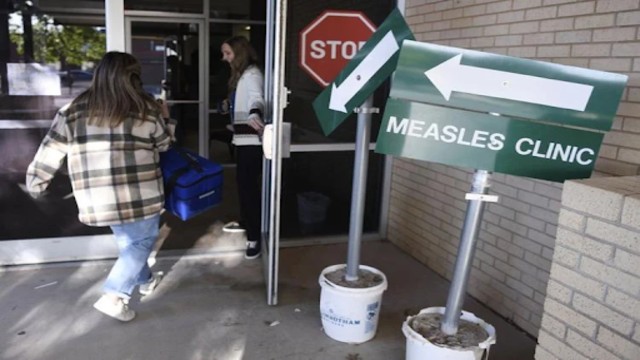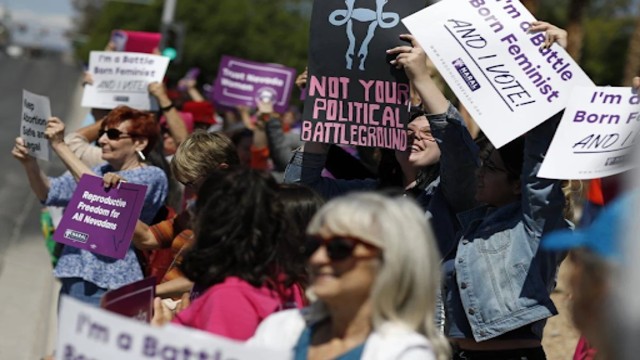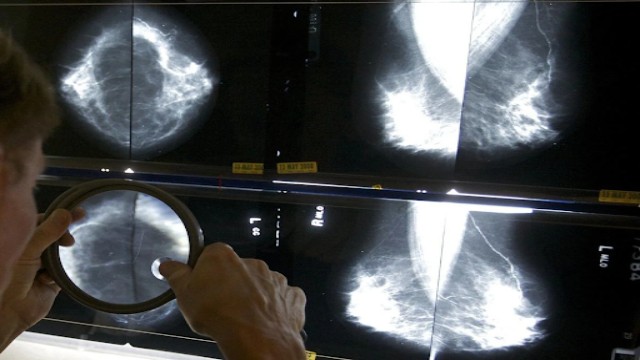
Protestors in Phoenix raise their voices, joining the throng around the Arizona state Capitol following the U.S. Supreme Court's overturning of the historic Roe v. Wade abortion ruling on June 24, 2022. This week, three state supreme courts are set to deliberate on abortion-related cases amid ongoing tensions. (AP Photo/Ross D. Franklin, File)
This week, the Texas Supreme Court garnered attention for rejecting a woman's plea for an immediate abortion due to severe pregnancy complications, reflecting a broader landscape of legal developments and debates surrounding abortion policies in Western states. Lawsuits in various states focus on overturning abortion bans enacted by Republican-controlled states last year or seeking clarification on exceptions applicable in specific pregnancy situations.
In Texas, a significant case involved Katie Cox's request to terminate her pregnancy at 20 weeks, with her fetus expected to die in utero or shortly after birth. Despite her health and future fertility concerns, the Texas Supreme Court denied the request, citing non-qualification for exceptions to state abortion bans. Cox had already sought an abortion in another state by the time of the ruling.
Similarly, Idaho witnessed a case where women sought clarification on exceptions to the state's abortion ban, emphasizing real scenarios facing doctors. The state argued for dismissal, deeming the case based on hypothetical scenarios, while the plaintiffs insisted on the urgency of addressing vague regulations harming women.
Ohio providers, challenging the ban on abortions after detecting cardiac activity, renewed their call for striking down the ban following Ohio voters' approval of a constitutional amendment protecting reproductive decisions. However, the ban persists, with legislative hurdles complicating its repeal.
In New Mexico, state and local laws clashed over abortion regulations, with conservative city and county governments imposing restrictions despite the absence of statewide restrictions. The state supreme court heard arguments on whether these local regulations could be overridden.
In Wyoming, a judge considered whether to decide on abortion bans immediately or proceed to trial in spring, with challenges against laws prohibiting abortion at all stages and medication-induced abortions. The state's high court also heard arguments from lawmakers opposing abortion rights seeking to defend the bans.
Arizona's Supreme Court deliberated on the validity of a territorial abortion ban from 1864, questioning whether it supersedes a newer law adopted last year. The court's decision will impact prosecutions related to abortion services in the state.
Finally, the U.S. Supreme Court announced it would hear an abortion case during its current term, focusing on the approval of mifepristone, a drug used in medication abortions. The case, with potential implications for abortion access, marks the court's first engagement with abortion since last year's Dobbs v. Jackson Women’s Health Organization.
These diverse cases underscore ongoing legal battles and debates surrounding abortion rights across Western states, reflecting the complexity and varied legal landscapes in the region.















